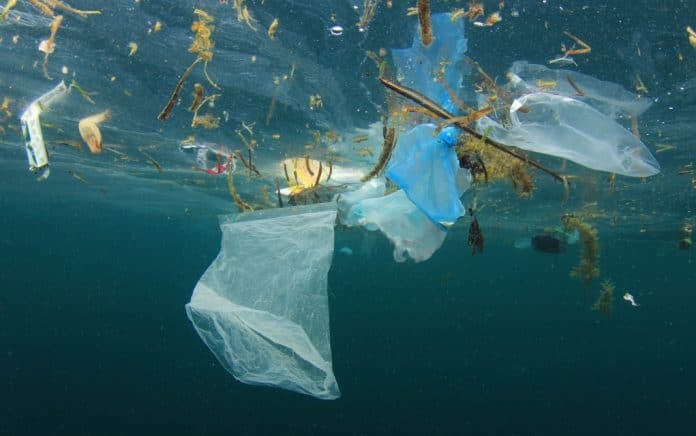 By Dean Cambridge, Sustainable Business Engagement Manager, WWF
By Dean Cambridge, Sustainable Business Engagement Manager, WWF
Many UK businesses are now doing their bit to end the horror of plastic pollution, and not a moment too soon. Eight million tonnes of plastic waste are already dumped in the ocean each year and this is set to double by 2025. As we saw on the BBC’s Blue Planet II, plastic pollution is choking our oceans, killing wildlife and finding its way into the food chain.
While the Chancellor has announced a public consultation on single-use plastic waste in his spring statement, we’ve recently seen encouraging moves from the likes of Wagamama, Iceland, PG Tips and most of the big coffee chains, clearly responding to pressure from customers and the media whilst also looking to stay one step ahead of legislation.
These big firms might be leading the way on plastics, but whatever the size of your company, you too need to act now or risk being left behind. But where do you start? What can your business do, particularly if you’re not a blue chip firm with your own environmental team to make change happen? Here are our eight top tips for turning your business into a plastic-free paradise.
- Grab the low-hanging fruit with a simple audit. Take a look around your office or warehouse and you might see some obvious examples of single-use or disposable plastics that can be phased out. Are you still using plastic cups at your tea and water points? Consider investing in some drinking glasses or ask your team to bring in their own reusable mug or water bottle. You could even use it as an employee engagement opportunity and buy them a sustainably-sourced branded bottle. It’s good for a business when its people are proud of their employer for doing the right thing.
- Clean up your catering. Does your staff canteen give away disposable plastic cutlery and straws? In 2018 this ugly stuff is looking increasingly behind the times. Fortunately there are plenty of alternatives, whether it’s paper straws, good old fashioned reusable knives and forks, or even compostable crockery. Maybe your canteen could take a cue from the big coffee chains now offering a discount to customers who bring in their own reusable cup.
- Follow this hierarchy: refuse, reduce, reuse, recycle. Ask yourself the following about each example of single-use plastic in your business: do we really need this? Could we buy a more environmentally friendly alternative or use something that contains no (or less) plastic? Could this have a useful life after fulfilling its original purpose? Can it be recycled?
- Look in every corner of your business. You might be surprised at how wasteful some parts of your operations Don’t forget to include your brand or marketing teams to make sure there aren’t any pointless plastic giveaways being handed out at conferences or in the street. There are plenty of branded merchandise companies now offering sustainable alternatives that might also have a longer shelf life with your target audience.
- Challenge your supply chain. Does the stuff you buy into the business come swathed in bubble wrap or nestled in polystyrene? Tell your suppliers you’re phasing out disposable plastics and challenge them to offer alternatives. State your plastic pledges in your environmental policy and publish it on your website to show you’re committed.
- Reimagine your packaging. Are you passing an unnecessary plastic burden onto your customers? Think of innovative ways to design plastic out of your packaging or find a sustainable replacement.
- Think circular. If you find some plastic is, for now, unavoidable, make it easy for your staff and customers to recycle or return it to you for reuse. People want to do their bit, but it’s not always obvious what can be recycled and how. They’ll value your guidance and that’s good for your brand.
- Evaluate and communicate. Make a note of how much plastic waste you were creating at the beginning of your journey, set ambitious targets (could you even set a date by which your business will be single-use plastic-free?), and keep track of your progress. Showing colleagues the impact of your efforts will keep them motivated and create the space for you to go further. And customers will be impressed if you can show you’re taking meaningful action against the plastic pollution crisis. Express it in inspiring ways: how many tonnes of waste have you saved in a year and how many killer whales weigh the same as this?
And if you manage to do all of that? Keep going! Plastics aren’t the end of the story when it comes to our throwaway culture. If you can tackle single-use plastic you can tackle single-use anything. Ultimately, no economy can prosper on a trashed planet and there are huge business opportunities in becoming leaner and treading more lightly on the Earth.


